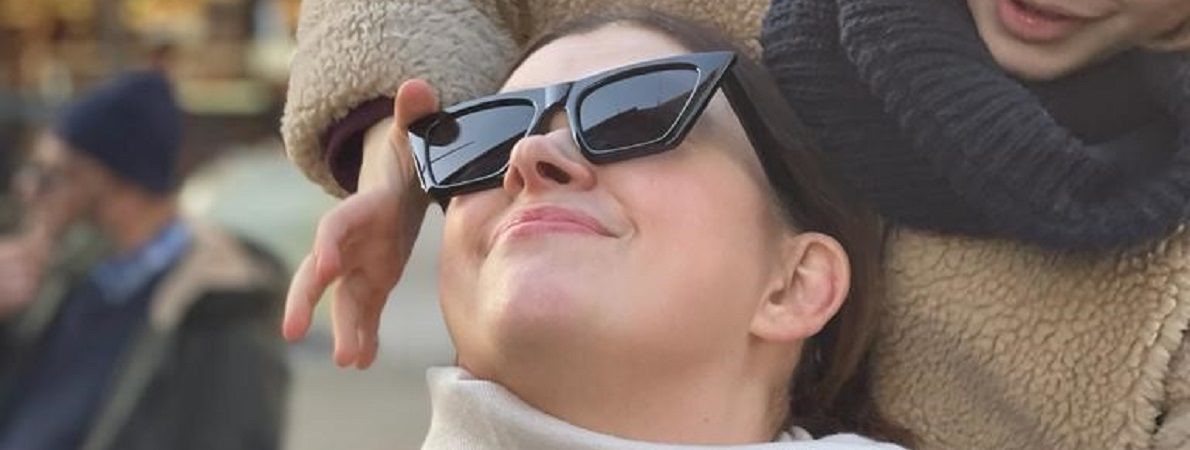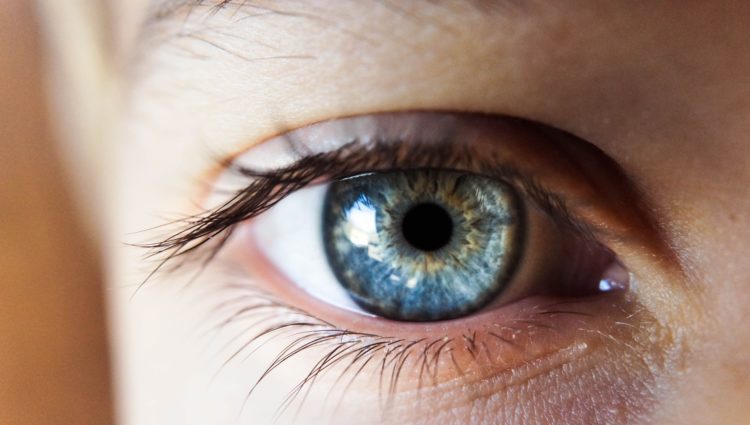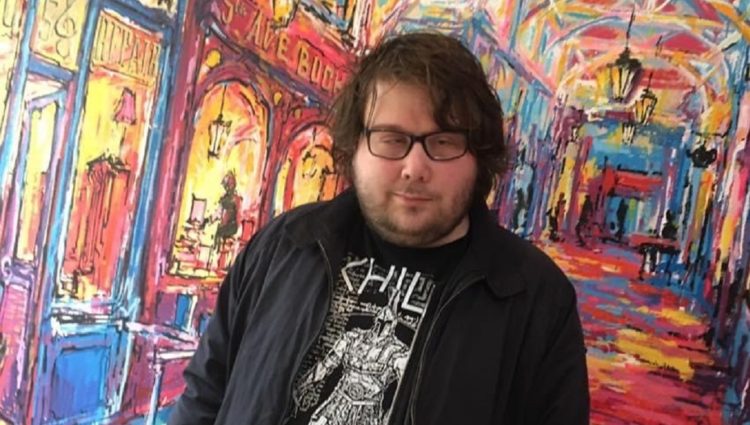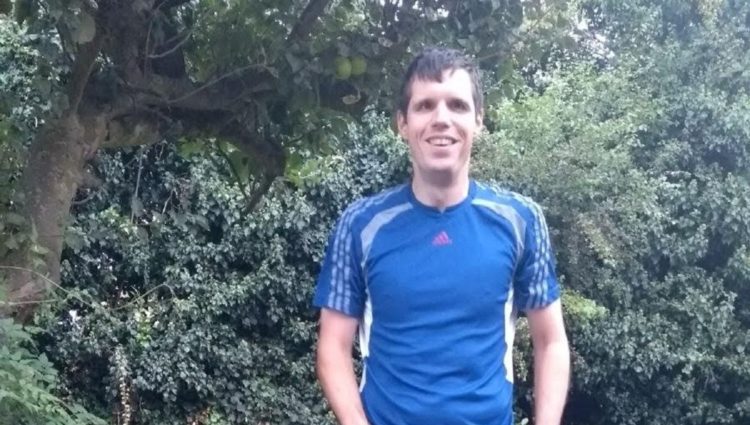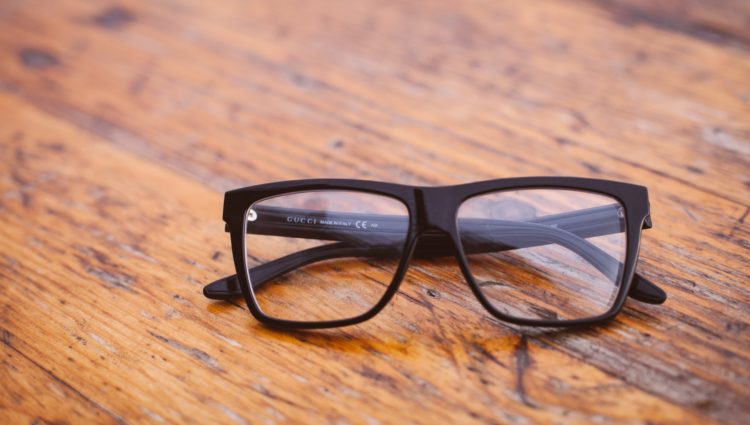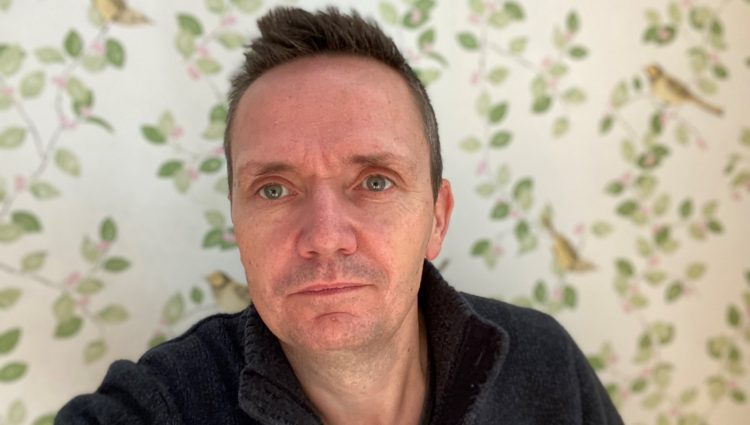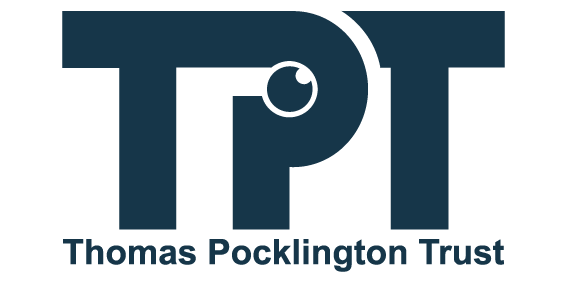As part of National Eye Health Week 2022, we asked people to tell us their stories about eye health and the importance eye health tests and eye health awareness more generally.
This is Nicki’s story
“In 2014 I had a routine eye test after my son was born as my prescription, which was done during pregnancy, had changed. This is common due to hormonal changes.
“During the eye test the optician noticed inflammation and I was referred to an ophthalmologist. At first they were bemused as to why I was there as I had been entirely symptomless, but it was quickly established I had ‘Chronic Anterior Uveitis’ and I was routinely monitored thereon.
“In 2017 I was diagnosed with the early onset of a cataract in my right eye. We moved overseas later that year, but within six months the cataract was so dense I couldn’t see anything in this eye.
“I had cataract surgery in November 2018, however my vision remained blurry afterward. Around eight weeks later, my vision was still blurry and I noticed that the eye appeared droopy. I was called in for an emergency ultra-sound and was quickly referred to a leading eye hospital in Miami. It was established that the sight loss was due to very low pressure (hypotony) in the eye, causing choroidal folds, which were behind the loss of vision.
“They were concerned about the cataract forming in my left eye and I was put on immunosuppression straight away. The focus swiftly moved to preventing the same happening in my left eye, whilst treatment for the right continued
“A few months later due to the lack of specialisation on the island where we lived, we made the decision to move back to the UK. I am now under the amazing care of Moorfields Eye Hospital.
“After various procedures and attempts to restore my sight, they discovered my right eye does not have a ciliary body. This is quite rare but explains why it can’t make or retain pressure. A healthy eye should have a pressure of between 10 – 20, mine sits between 1-3. I have had two silicone oil implants, but sadly the pressure always drops, my vision remains blurry, and I am ‘counting fingers’. I am currently waiting for a third silicone oil implant and hopefully this time we will have more success.
“The cataract in the left eye naturally worsened and in May last year I had to surrender my driving licence. The pressure had also started to drop so I had a steroid injection to counteract this. Unfortunately it had the opposite effect and I lost all pressure and vision for three weeks. This was baffling to my consultants but thankfully the pressure came back up. Most of last year was spent with very limited vision due to the density of the cataract, however due to the unpredictable nature of my eye, Moorfields wanted to delay surgery for as long as possible. I had a second steroid implant in September, but frustratingly the eye responded in the same way. By December the cataract was so dense we decided to proceed with cataract surgery, however several measures were taken during surgery to counteract the loss of pressure which we anticipated as a result.
“After surgery I had blurry, but ‘clear’ vision for six days, but then I felt a little disorientated and I knew the pressure had dropped. My consultant topped the eye up with saline and jelly, but with limited success. This was not sustainable option. In February after several cross-department meetings, my consultant injected jelly into the back of my eye – this had never been done before but I was keen to try and avoid oil at this stage. Hypotony isn’t uncommon, however most eyes do recover after treatment. Unfortunately, my eyes “don’t behave like normal eyes”, and are an exception to the rule.
“It was touch and go for the first few weeks with the pressure and vision fluctuating, but currently pressure is stable in the left eye and I have quite a good level of distance vision. My close-up vision is awful, but there are several reasons around this which will be addressed at a later stage. They don’t know how long the jelly at the back of my eye will last, however the success we’ve had means they will be able to repeat the procedure if it falls again.
“They are putting together a clinical study of my case to use in other patients. I truly hope they can use my experience to prevent similar happening for other patients.
“It is easy to overlook routine eye testing. Perhaps you’re too busy or haven’t noticed a change in your vision, your eyes are “fine”. Hopefully, my story demonstrates the importance of routine eye testing and encourages you to prioritise this.
For me, it detected something that was entirely symptomless, but has had a profound impact on my life.”

